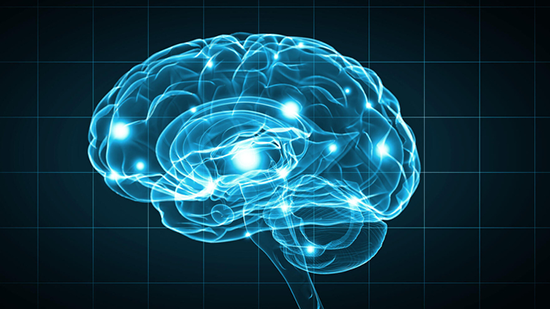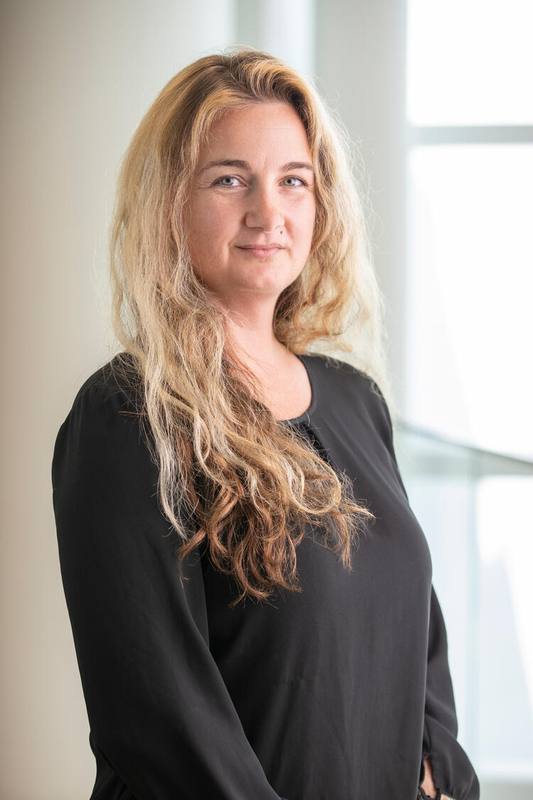-
Aging
Grant aims to help modernize Mayo Clinic Brain Bank and enhance research discoveries

The Mayo Clinic Brain Bank is home to more than 11,000 brain tissue samples used for research studies worldwide. About 3,000 of those donated brains come from patients across the state of Florida. Now, a new grant will help fund community outreach and computer technology programs that make it easier for researchers to access the brain bank and share discoveries in neurodegenerative diseases.

The Alzheimer's Association Florida Gulf Coast Chapter has awarded the grant to Melissa Murray, Ph.D., a professor of neuroscience and co-director of the Mayo Clinic Brain Bank. Dr. Murray is also director of the Translational Neuropathology Laboratory at Mayo Clinic in Florida, which has a mission to prevent Alzheimer's disease and related dementias. The funds are designated to the Florida Autopsied Multi-Ethnic (FLAME) Cohort within the brain bank, which focuses on the diversity of abnormal proteins found in brains and seeks to ensure the inclusion of Hispanic and Black American brain donors.
The risk of developing dementia is 1.5 times greater in Hispanic Americans and twice as high in Black Americans compared with non-Hispanic white Americans, according to Mayo Clinic researchers.
"Brain banking is built around a compassion for families and care partners to provide closure through diagnostic evaluation of the brain. The scientific goal of brain banks is to characterize, store and share tissue with qualified researchers to accelerate therapeutic discoveries by uncovering a deeper understanding of how disease affects these patients," says Dr. Murray.
"Brain banking is a costly endeavor that is difficult to obtain funding for and, with an ever-increasing demand for tissue sharing, we need to find ways to enhance workflow," she says. "This grant will help us develop technology that can be used to support documentation of important information critical for scientific discoveries. Perhaps even more importantly, this grant will fund efforts to share knowledge with, and learn from, Hispanic and Black communities affected by Alzheimer's disease and related dementias."
Specifically, the funding will support outreach and education efforts, as well as preliminary support for the development of a website that can connect with a database system for the brain bank. Erica Engelberg-Cook, Ph.D., the Mayo Clinic Brain Bank community and scientific liaison, will work with researchers to identify their research needs, which can be used to design an online system for tissue requests.
The Mayo Clinic Brain Bank was established in 1991 on the Mayo Clinic in Florida campus and led by Dennis Dickson, M.D., since 1998. The donated brains are shared with researchers at Mayo and academic medical centers around the world to advance studies on the pathology of diseases and conditions such as Alzheimer's disease, Parkinson's disease, amyotrophic lateral sclerosis (ALS), frontotemporal dementia, Lewy body dementia, progressive supranuclear palsy and stroke.
The brain bank receives donations from across the nation through programs such as the Alzheimer's Disease Research Center and from across the state through the Florida Alzheimer's Disease Initiative.
The brains are obtained at autopsy after patients' consent and are sent to the brain bank for diagnostic evaluation and research studies. The brain bank also collects non-diseased brain tissue to establish control groups for studies.
"Through the sharing of human tissue, researchers at Mayo Clinic and around the world are one step closer to directly improving patient care," says Dr. Murray. "There is also a great need for people unaffected by disease to donate their brains to allow us to understand the aging process. Even more important is the need to enhance brain donations from underrepresented groups through the sharing of knowledge and learning from communities."







